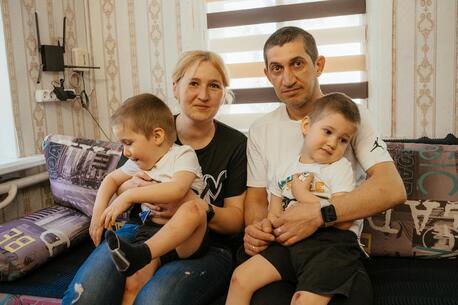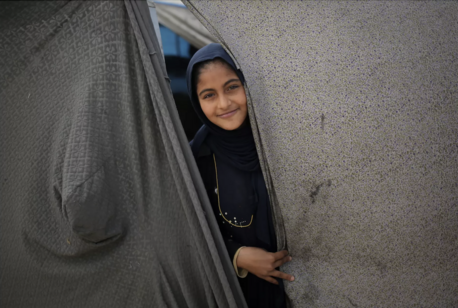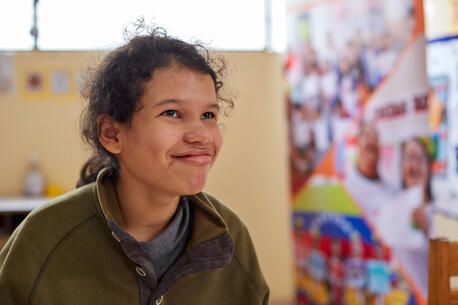
The UNICEF USA Bridge Fund Accelerates Social Inclusion
UNICEF and Special Olympics team up for Ugandan children with disabilities.
Lucy Meyer, a five-time Special Olympics gold medalist, and the 18-year-old spokesperson for UNICEF USA’s partnership with Special Olympics, makes a strong case for the social inclusion of the disabled. “I don’t think about my disability at all,” says Lucy. “Yes, I have cerebral palsy ... But the first time someone called me disabled, I came home saying, ‘I am not disabled. I’m LUCY!’”
The challenges she’s committed to overcoming aren’t small. Worldwide, there are an estimated 93 million children with disabilities, but many countries don’t collect reliable disability data. Disabled children are often the poorest, with less opportunity for school and healthcare, and little say in policies that affect them. Their disabilities also make them more vulnerable to abuse and may limit their access to nutrition and emergency assistance.
Since 2011, however, UNICEF and Special Olympics have collaborated in more than 35 countries to highlight the contributions children and teens with disabilities can make to their communities, while integrating them into development strategies and offering sustainable social inclusion.
During the second quarter of Fiscal Year 2018, to speed up the launch of a one-year UNICEF/ Special Olympics project in four districts in Uganda — the Bridge Fund has pre-financed a generous $100,000 grant from the Morris Braun Foundation. This grant, which will help empower more than 400 children — with and without disabilities — was facilitated by Barbara Chyette and Denise Chyette Larsen, committed supporters of UNICEF USA. The Bridge Fund’s acceleration will kick-start programming to improve opportunities for children with disabilities. Activities will include teacher/coach training; community outreach to raise awareness about disabilities; and family health forums that empower parents and caregivers. Inspired by the principle that training and playing together fosters friendship and understanding, the project will culminate in a sports competition for children (with and without disabilities) between the ages of 6 and 19.
In addition to helping those directly involved, this project incorporates Ugandan District Education offices and Uganda’s Kyambogo University, too, offering the country a potential model as it affirms the rights of children with disabilities — enshrined in two different international U.N. agreements. The Bridge Fund’s acceleration will also help promote two Sustainable Development Goals, one involving educational access and the other equity.
As Jamie Meyer, Lucy Meyer’s mother, says of the UNICEF/ Special Olympics partnerships she’s observed with her daughter: “We’ve seen how UNICEF’s unequaled deep relationships with host governments and other service agencies make lasting change in the lives of so many children.”
How You Can Learn More and Take Action
Are you, or the organization you work for, social impact investors?
Or, are you a donor who cares about making systemic, sustainable progress for children around the world?
Top Photo: Injured during a bomb attack in Syria's civil war, Saja dreams of one day taking part in the Special Olympics. She practices doing aerial flips every day in her tiny apartment. “I love playing football. When I play football, I don’t feel like I’ve lost anything at all,” she says. ©UNICEF/UN062482/Al-Issa
HOW TO HELP
There are many ways to make a difference
War, famine, poverty, natural disasters — threats to the world's children keep coming. But UNICEF won't stop working to keep children healthy and safe.
UNICEF works in over 190 countries and territories — more places than any other children's organization. UNICEF has the world's largest humanitarian warehouse and, when disaster strikes, can get supplies almost anywhere within 72 hours. Constantly innovating, always advocating for a better world for children, UNICEF works to ensure that every child can grow up healthy, educated, protected and respected.
Would you like to help give all children the opportunity to reach their full potential? There are many ways to get involved.





